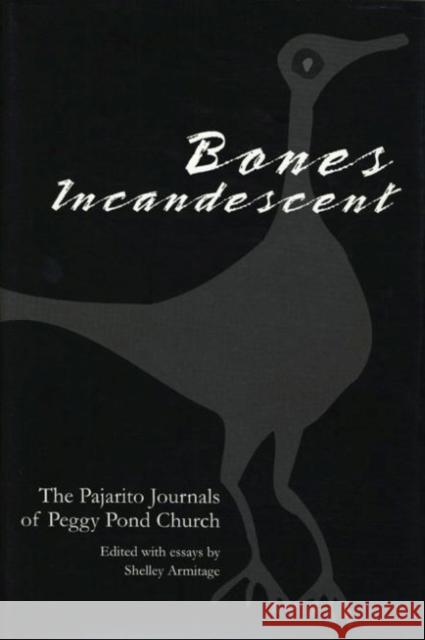Bones Incandescent: The Pajarito Journals of Peggy Pond Church » książka
Bones Incandescent: The Pajarito Journals of Peggy Pond Church
ISBN-13: 9780896724389 / Angielski / Twarda / 2001 / 282 str.
A personal ecology is what poet and writer Peggy Pond Church called the journals she kept for more than fifty years on New Mexico s Pajarito Plateau. Church s work appeared regularly in Poetry and Saturday Review of Literature and her biography of Edith Warner, The House at Otowi Bridge, became a regional classic. She had a profound relationship with the place now known best for the Los Alamos laboratories and the Manhattan Project. The journals from her childhood in the 1930s through 1986, the year of her death, are studies in spiritual and psychological responses to the landscape that informed her sensibilities and creative energy. The plateau she loved became both her subject and the basis of her connection to other women writers, particularly Warner, Mary Austin, and May Sarton.Church, Armitage says, has given us an extended lyric, essential to the growing critical awareness of women s autobiography, landscape studies, and creativity: The earth was not to us entirely a benign mother, but a place of uncertainty and strangeness. A chaos existed beneath our feet that broke forth occasionally in our dreams . . . I was ten and a half years old when I first saw Pajarito and experienced what it was like to live within the boundaries of a once sacred world. Two strains earth as persona for mighty mother, terrain as sacred in its own right become threads of consequence that Church herself retraces in editing the original journals. In an internal dialogue documented by the red of Church s typewriter ribbon responding to its original black, Armitage notices the imprints of earliest childhood: I remember at Pajarito when I first fell in love with dawn, how I used to go out before daybreak in my bare feet and khaki middy blouse and bloomers, tiptoeing down the steep stairs between my parents room and mine . . . the pale predawn sky arousing a resonance with all my life s dawn hours . . . the silence of a wordless world."











